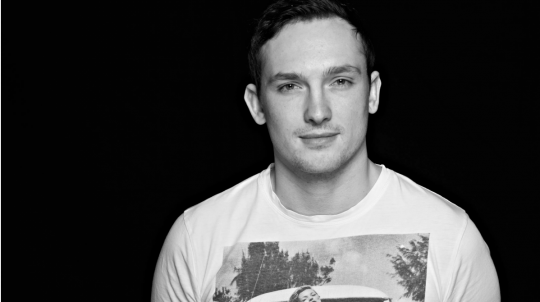After selling our company Casacanda to Fab.com I sat down with the Observer to discuss how Berlins start-up scene is starting to grow up.
Here is the article.
Roman Kirsch, who skipped two grades, has studied in Los Angeles and London, backpacked in Australia and interned at Goldman Sachs. In July 2011, he and two cofounders started an Internet company most recently reportedly valued at $10 million. About six months later, he sold it to one of the hottest startups in New York. He is 23.
It’s enough to make you wish for some Schadenfreude. Until you meet Mr. Kirsch, that is, who gave Betabeat a hug when we met with him on Monday morning at Wohnzimmer Bar, or “living room bar,” a quiet and quaintly-decorated cafe in Berlin’s startup-heavy Prenzlauer neighborhood. Wrapped in Abercrombie, he ordered a hot mint tea with honey in place of coffee. He struck us immediately as, well, calmer than the average starry-eyed 20-something New York startupper, an even speaker with wry, smiling eyes. Still, he described his company’s acquisition by Fab.com as “the best thing that could ever happen.” The exact terms were undisclosed, but it was an all-stock sale.
Mr. Kirsch launched Casacanda, a flash sales site focused on well-designed, unique products, with two cofounders he met in business school. (The school, WHU, located in a small town between Frankfurt and Cologne, produces most of the startup entrepreneurs in Germany, Mr. Kirsch said, including the infamous copycat brothers, the Samwers, as well as the founder of DailyDeal, which was recently bought by Google.) The cofounders bootstrapped until the fall, when they raised a quick $1 million right before the site’s launch in September.
The company started making millions in revenue as it grew to 250,000 members and 45 employees. That’s when it caught the attention of Jason Goldberg, the CEO of New York’s fast-growing flash sales destination Fab.com. The road to acquisition started when Mr. Goldberg was in Berlin to give a speech. He budgeted 30 minutes to meet with the Casacanda team. He was so enthralled with Casacanda that he tried to cancel his talk. That proved difficult, so he met with the young founders afterward. Mr. Goldberg was drawn to Casacanda’s attention to design details as well as the details of its numbers; its focus on finding products so unique that members would be compelled to share them on Twitter and Facebook; and the raw ambition of the founders. Mr. Goldberg, who aspires to make Fab the next Amazon, is a great appreciator of ambition.
The acquisition, a stock-only deal, solidified Casacanda/Fab.de’s position as a leader and role model for the fledgling Berlin startup community. As of now, Berlin’s startup scene has a few standouts. SoundCloud, the audio hosting platform, is internationally know. Wooga, Germany’s Zynga, is the second-largest social gaming company on Facebook. But unfortunately, Germany still has the reputation as a sort of European copy machine for successful American startups.
That’s because investors in Germany are cautious, Mr. Kirsch said, and it’s difficult to get anything truly new funded. The copycats are also an important part of the Berlin ecosystem, he said, and in addition to introducing people to entrepreneurship, many of the copycats evolve beyond clonehood. “It’s harder to sell innovation,” he said. “So people say, ‘If I’m going to do something really innovative, no one will fund me anyway. When I get the money I can still be innovative.’”
Mr. Kirsch decided to be an entrepreneur because of the speakers who came to WHU. The investment bankers and consultants pitched their industries hard, he said, but there was something phony about it. By contrast, the entrepreneurs “had these little sparks in their eyes” and truly seemed passionate about what they were doing.
Although it didn’t have the double mega-pivot Fab did (the progression as described by its CEO once included “Facebook for gays” and “Groupon for gays”), Casacanda started out with a focus on home decor and interior design, and then expanded its product catalogue after the site launched. Mr. Kirsch is a big fan of pivots, himself. “Every day, you have to ask yourself, ‘is this the best we can do?’” Mr. Kirsch said, citing Nokia, which originally sold a diverse product line that included rubber boots.
As Fab.de–Fab’s first international acquisition, by the way–the company will soon have about 80 percent product overlap with its U.S. counterpart, as most suppliers are more than happy to sell in both countries. It’s up to 55 employees and in the process of moving into a new office. The flash sales space is hot, and Mr. Kirsch feels motivated by all the competition between startups on the Internet. “Some people even refer to it as war. Every day you have to prove that you’re the best person to serve your customers,” he said.
Last week, on the day Casacanda relaunched as Fab.de, it snowed hard in Berlin–which was perfect timing. “People stay at home and just have more time to browse the Internet,” Mr. Kirsch said. (Also, Betabeat arrived after the melt.) He gave Betabeat another hug as we parted, and recommended we check out Berlin’s art history museum.
